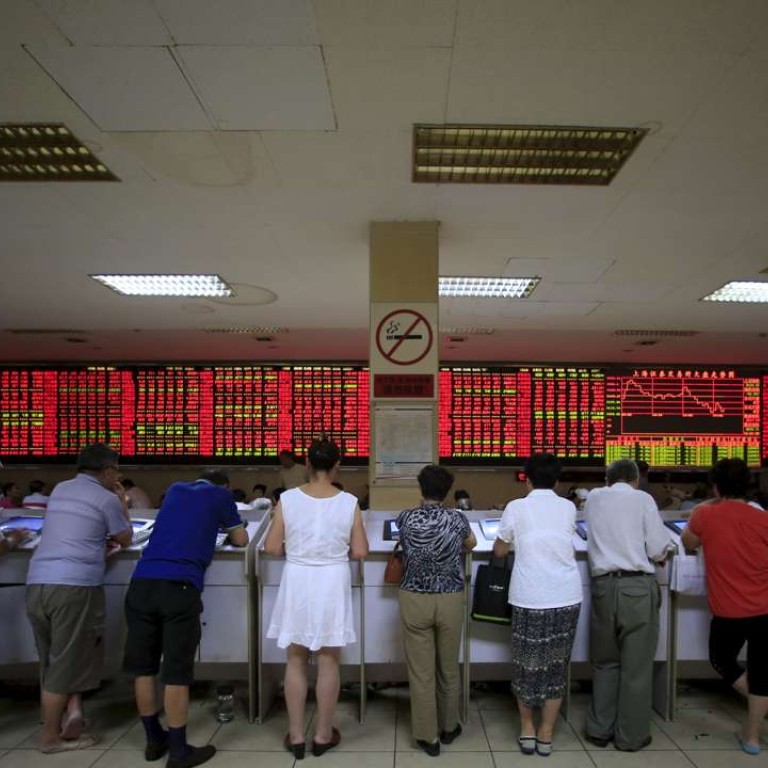
Analysis | Securities regulator’s formula for 2017: accelerate new share offerings, while curbing financing by listed companies
IPO speed in January marks a historical high as the CSRC tries new tactic to crack down on speculation
The country’s top securities regulator, the China Securities Regulatory Commission (CSRC), is pushing ahead with a new tactic that could reverse a long-term issue in the domestic A-share market: accelerating new share offerings, while curbing financing by listed companies.
The speed of initial public offerings (IPO) has started picking up since last November.
A record 43 new flotations were launched in the first 20 days in January, compared with just three in the same period last year.
Official Chinese media, including Xinhua and People’s Daily, have started publishing articles in recent weeks, reporting on a renewed “normalisation” of the IPO market.
Last Friday, Zhang Xiaojun, the CSRC’s spokesman, said the authority tightened approvals of refinancing applications by listed companies in 2016, and would take further measures to continue to curb frequent and massive financing attempts.
He noted, however, the rules on refinancing by listed companies still “need to be improved”.
“To put it simply, the CSRC is shifting towards a policy that accelerates the speed of IPOs, while restricting fund raising by listed companies,” Yin Zhongli, a researcher with the Chinese Academy of Social Sciences wrote in his blog last week.
“This will directly weigh on the valuations of shell companies, and curb speculation-based investment behaviour.”

Shell companies refer to firms that are listed, but often of poor quality – but they enjoy financing privileges and have value, simply because of their listed status.
Listed companies raised over 1 trillion yuan (HK$1.13 trillion) via private placement of shares in 2016, eight times the proceeds raised through IPOs, according to official Xinhua News Agency.
The sharp contrast highlights the financing privileges of listed entities, but some shell companies have taken advantage of this by seeing their share prices rise as interest in them grows as targets, or they decide to raise funds to develop new or more-valuable business sectors such as tech, health care, entertainment, or sport.
Enjoying the status of being a listed company is attractive to investors, too, regardless of their quality and valuation.
To put it simply, the CSRC is shifting towards a policy that accelerates the speed of IPOs, while restricting fund raising by listed companies
The 245 new listings each on average rose 430 per cent in the first month of trading in 2016, the highest since at least 1999, according to Bloomberg, and an average 454 per cent in the first six months.
The Shanghai Composite Index fell 12 per cent in the entire year.
The risk of losing listed privilege is extremely low in China with only two companies delisted from the domestic A-share market in 2016 – under instruction of the regulator – representing just 0.07 per cent of the total number of listed companies, compared for instance to the Nasdaq’s average annual delisting ratio of 8 per cent.
Zheng Zhigang, a finance professor at Renmin University of China said: “For sure, the regulators want to correct the speculation-based valuation system of the A-share market, but it takes time to see whether it can stick to its reform agenda amid a falling market.”

Companies on China’s Nasdaq-style ChiNext board have been the first to feel the effects of the quickening pace of new floats, with capital being diverted elsewhere from a market already suffering from tightened liquidity, under the authority’s overall plan to encourage companies to deleverage.
The ChiNext board, designed to help finance tech start-up companies in Shenzhen, has already slumped more than 9 per cent in the first two weeks of 2017, to a low of 1,805.39 on Monday, before recovering slightly to 1,870.7 by Wednesday’s close – although that’s still among the worst performing indexes on the global equities market.
ChiNext, however, is widely considered as China’s most-inflated market, with price to earnings ratios averaging 49.86, Reuters data shows.
For sure, the regulators want to correct the speculation-based valuation system of the A-share market, but it takes time to see whether it can stick to its reform agenda amid a falling market
Zheng said the regulator seems to be taking “a short-term pain, for long-term gain” approach to its plans, but noted it would be challenging to stick to its reforms if markets continue to fall.
Its major challenge, say experts, is to prevent financial turmoil, if market continues to fall quickly.
According to David Cui, a strategist with Bank of America, the A-share market’s leverage ratio is high compared with when the market crashed in mid-2015, measured by leveraged position as a percentage of total market capitalisation.
“Over half of that leverage is in the form of stock collateral loans (SCLs), which are particularly heavy on the ChiNext and small-and-mid-enterprise boards,” Cui wrote in a note issued last week.
As the 2015 stock rout experience showed, with high leverage, a vicious selling circle can quickly develop as stocks tumble.
Brokerages would be the first victims if rapid market falls cause hefty SCL losses. That could lead to a rise in inter-bank rates, Cui said, and/or an unwinding of bond positions by brokers to ease balance sheets, putting huge pressure on both the bond market and the shadow banking system.

